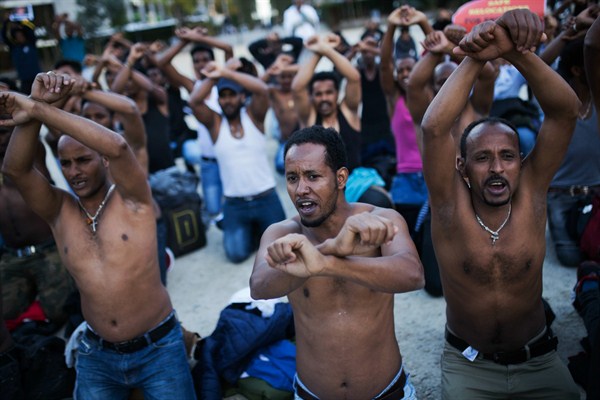Much has been written about the significance of the peace deal between Ethiopia and Eritrea for the Horn of Africa. Less attention has been paid to what it means for ordinary Eritreans. So far peace has sparked hope that the Eritrean economy will improve, but there are few signs of the political opening that many citizens dearly hope for.
Back in July 2016, I was invited to a gathering late one night at a popular bar in Asmara, the capital of Eritrea. The gathering was a traditional and quite elaborate coffee ceremony, the kind typically held in the afternoon in most Eritrean or Ethiopian households in order to discuss the day’s events. It had been organized by a group of young people, mostly women.
The crowd of about 12 people in the backroom of the bar was visibly joyful; they giggled as they passed around a mobile phone that contained pictures of one of their close friends, a young woman I’ll call Asmeret. Three months earlier, Asmeret had embarked on a dangerous journey out of Eritrea: Despite not having a passport or a visa, she had managed to cross the border into Sudan and, through trafficking networks, had made it across the Mediterranean.

